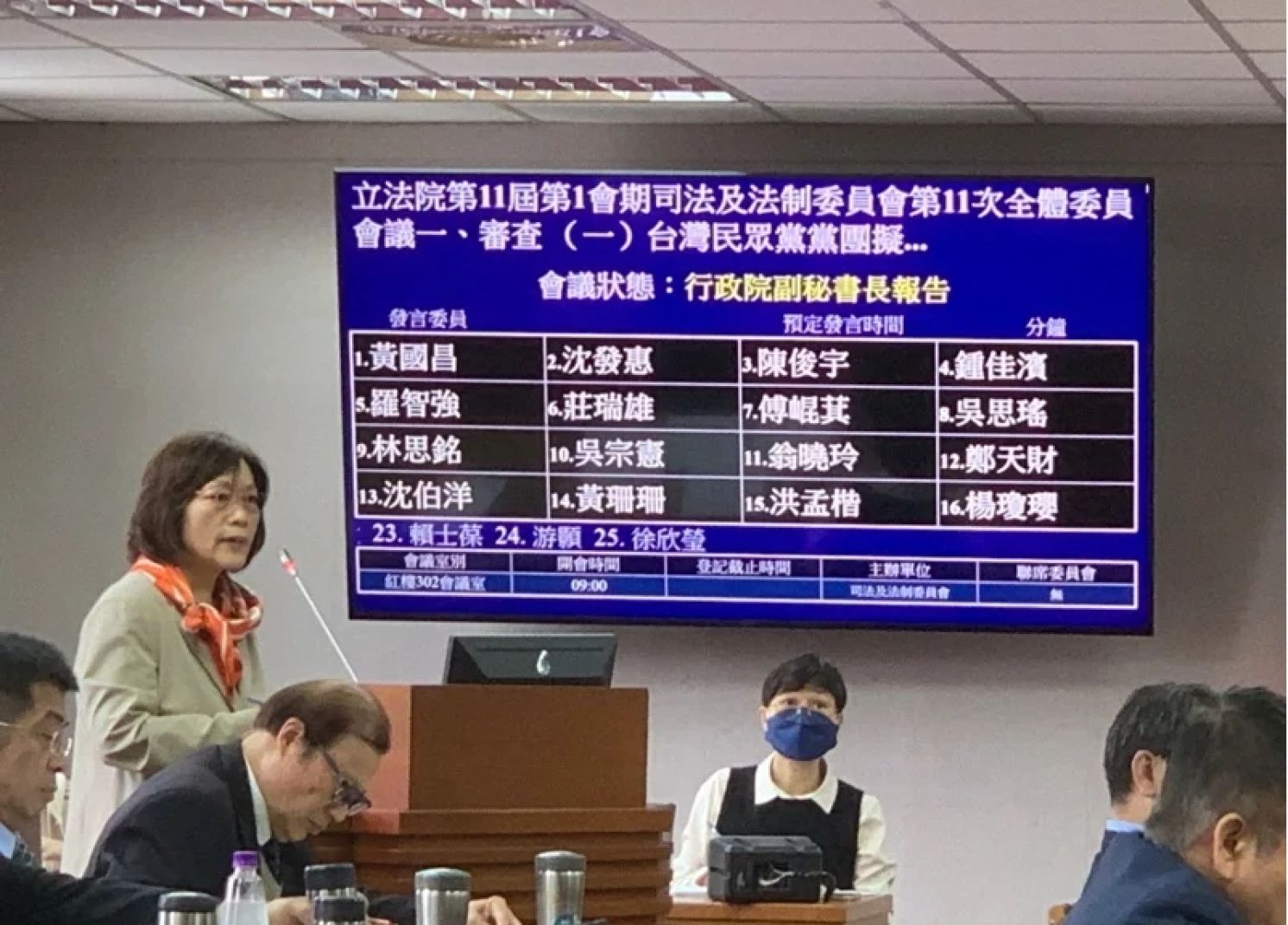
DPP Pretends to Like Legislative Reform, Officials Obtain Right to Lie
United Daily News Commentary, April 4, 2024
The legislative reform that President Tsai Ing-wen once vowed to carry out has been in a frozen state for a long time. Now that the ruling Democratic Progressive Party (DPP) suddenly heard that the opposition Kuomintang (KMT) and Taiwan People's Party (TPP) are pushing for legislative reform, the DPP’s attitude has changed drastically. However, even the DPP is only seeking legislative reform just for fame, but it must not block the reform of the Legislative Yuan and end up creating the right for officials to lie.
The Judiciary and Organic Laws Committee of the Legislative Yuan held a public hearing on the legislative reform bill. Lin Chih-chieh, distinguished professor of law at National Yang Ming Chiao Tung University (NYCU) and former DPP candidate for legislator, put a question mark over the opposition parties’ legitimacy in raising contempt of parliament. According to Professor Lin, under Taiwan’s legal system, the defendant can remain silent and can lie; but in the opposition party’s version of contempt of parliament, the person under investigation does not even have the right to remain silent or lie, which seriously violates constitutional rights.
Professor Lin’s statement on the "right to lie" caused controversy. KMT Legislator Niu Hsu-ting retorted that government officials now frequently evade questions and even question and insult members of the Legislative Yuan. It is obvious that responsible politics is not possible in the current situation, and it can only be implemented through legalization. After the hearing, the two sides fought again on Facebook. Legislator Niu criticized Professor Lin for using personal interests to lie as an analogy for scenarios in the public sector, which shows that her fundamental values are distorted.
Professor Lin opposes expanding the application of the contempt of parliament to the people and using criminal law to force people to accept questioning. She said that according to the opposition parties’ version, the Legislative Yuan could ask the Taiwan Semiconductor Manufacturing Company (TSMC) to provide R&D contracts involving business secrets, and fines could be imposed if they do not comply; it could also ask for Nobel Prize winners to come and be inquired, and if they did not come, they would be cited with contempt of parliament. Professor Lin was dissatisfied that her claim was said to mean that officials could lie when asked questions and believed that people were putting words in her mouth.
It is true that Professor Lin did not say that officials can lie, but when she talked about criminal defendants being able to lie without being considered guilty, in this relevant context, it was indeed easy to think that she was advocating that officials also have the right to lie. As for whether the private interests of criminal defendants can be compared to government officials which involve public interests, it is another dispute.
Many countries have enacted mandatory legal provisions such as the citing contempt of parliament to ensure that the legislature can effectively supervise the executive branch. In the United Kingdom, France, Germany, the United States, and Japan, the exercise of the power of investigation and hearing by the legislature is enforceable. Witnesses who refuse to attend or testify falsely may be fined or sentenced to imprisonment.
Taiwan cannot bear to have TSMC founder Morris Chang or Nobel Prize Chemistry laureate Yan T. Lee invited to the Legislative Yuan for questioning. Corporate giants like X’s (Twitter) Elon Musk, Meta’s (Facebook) Mark Zuckerberg, ByteDance’s (TikTok) Shou Zi Chew, Intel’s Pat Gelsinger, NVIDIA’s Jensen Huang, all of whom have been asked to testify before the United States Congress, must be full of envy.
In fact, the citing contempt of parliament proposed by the opposition parties is just an inheritance of the unfinished ambitions of the DPP. As early as 1994, then-DPP Legislator Chai Trong-rong proposed to amend the law to add the citing contempt of parliament, and officials or witnesses could be sentenced to one year in prison for making false statements; as of 2008, Chai was still promoting the amendment of the law. Not to mention, Kaohsiung Mayor Chen Chi-Mai, then DPP legislator in 2012, and Legislator Ker Chen-Ming in 2016. The DPP said it would add the citing contempt of parliament. The relay never stops! But once it gets real, the DPP changes its attitude.
If the amendment of the law still fails this time, then the DPP will continue to protect unfit officials. And it is even worse that by some incidental mistakes, officials will gladly gain the "right to lie" by taking advantage of the defendant's right to lie!